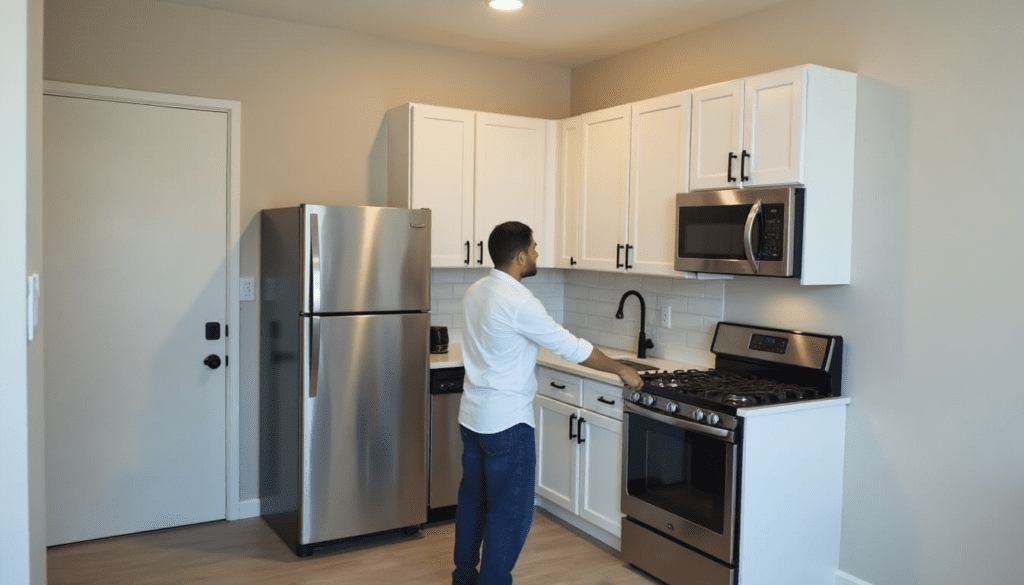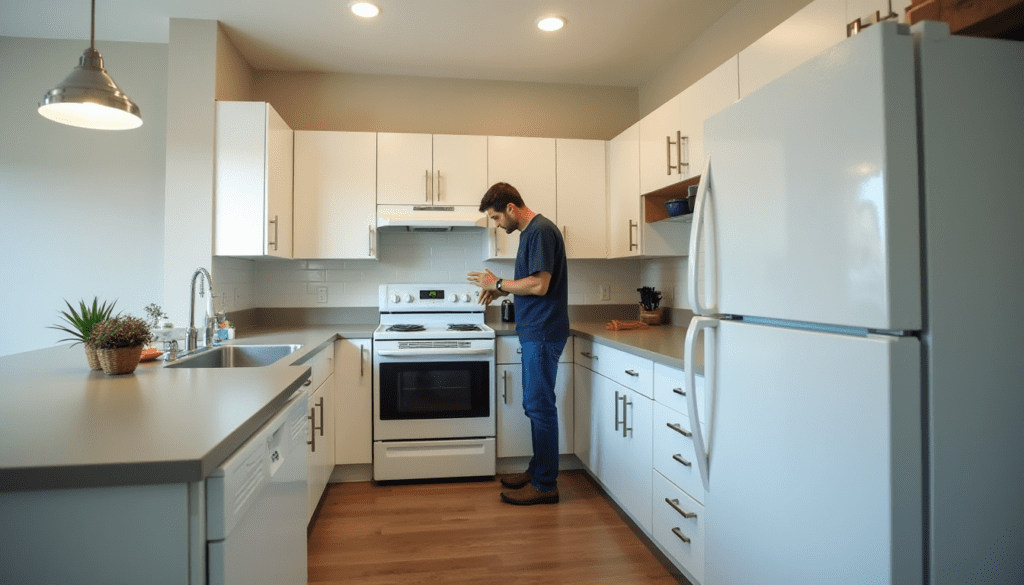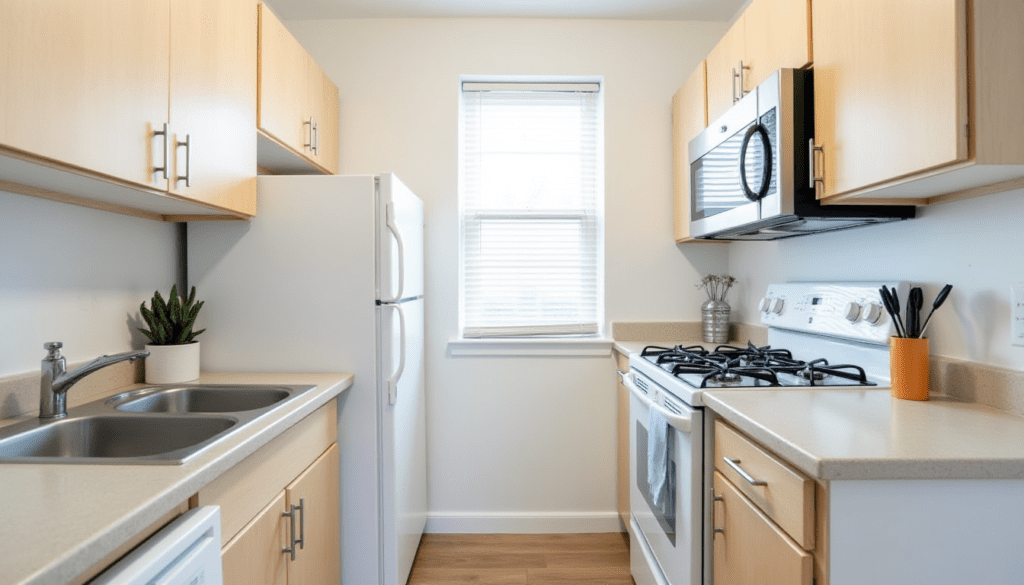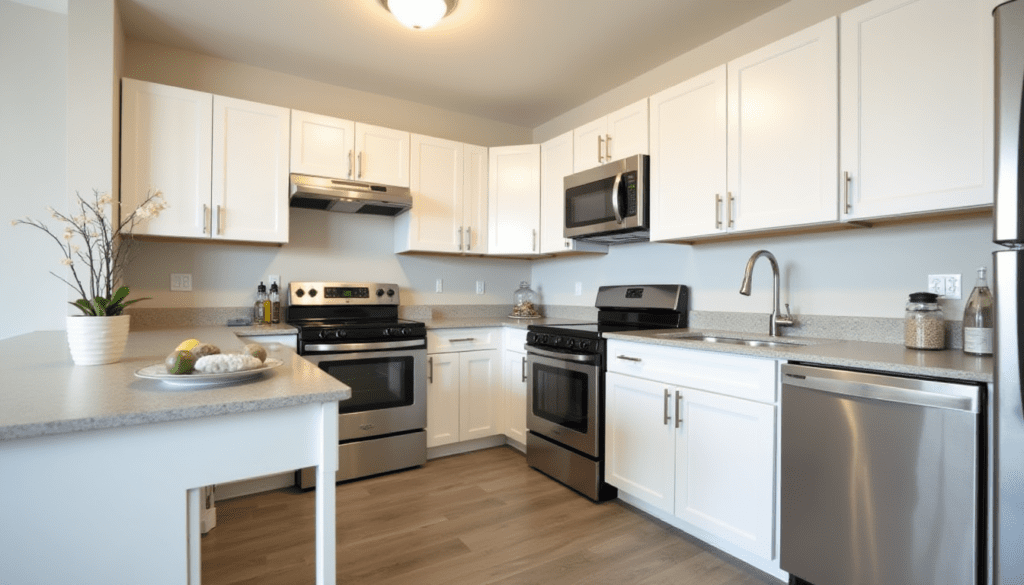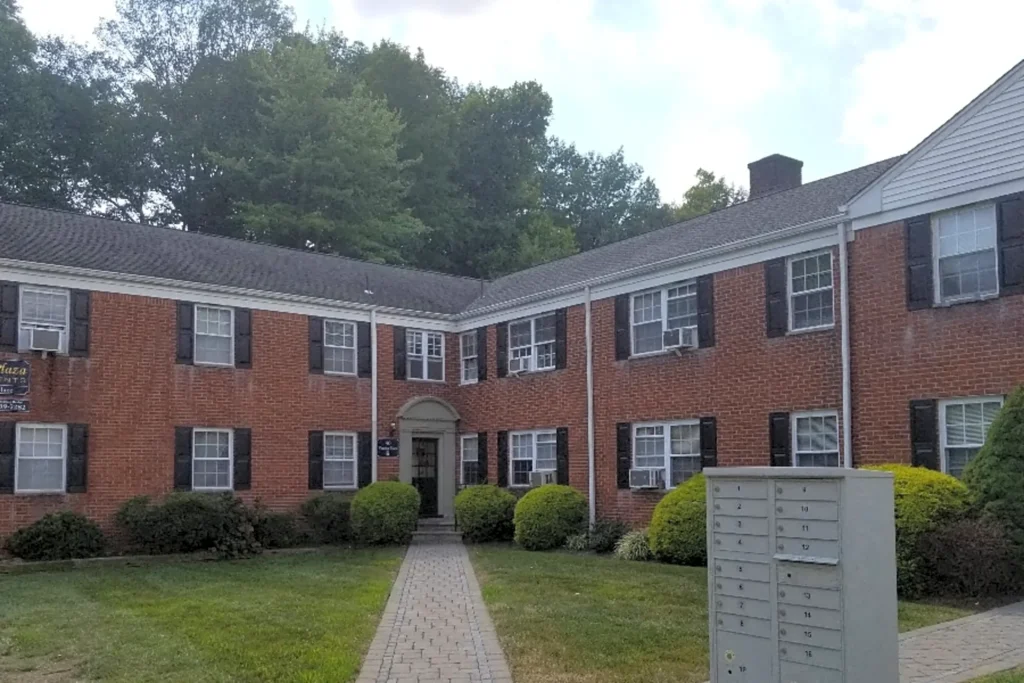Renting a home or apartment in Verona, New Jersey, offers residents the perfect balance between small-town charm and proximity to New York City. But as with any rental situation, it’s important to understand all the financial responsibilities upfront — especially when it comes to utilities. One of the most frequently asked questions from both tenants and landlords is: who is responsible for paying utilities in a rental unit?
The answer isn’t always straightforward, as utility responsibilities can vary widely depending on the type of property, the landlord’s preference, and what’s stated in the lease. In this guide, we’ll walk through everything you need to know about utility payments in Verona — from legal expectations and typical arrangements to practical advice and potential pitfalls. Whether you’re a new renter looking for transparency or a landlord trying to create a solid lease, this article will help clarify what you need to include — and look out for.
Understanding Utility Responsibilities in Rental Agreements
Before signing a lease in Verona, it’s important to clarify who pays for what. Utilities can cover a range of services, from basic essentials like electricity and water to additional options like cable and internet. In most rentals across New Jersey, tenants are responsible for the majority of utilities unless otherwise specified in the lease.
Here’s a list of common utilities that may come up in a Verona rental agreement:
- Electricity – Lights, appliances, and general power. Typically paid by tenants.
- Natural Gas or Oil – Used for heating and cooking. Tenant-paid in most cases.
- Water and Sewer – Often paid by the landlord, but can be shared depending on the building type.
- Trash Removal – Covered by local taxes in most towns, but some landlords manage private pickup services.
- Internet & Cable – Always optional and usually handled by the tenant.
One key factor to consider is that in multi-unit buildings or houses that have been converted into apartments, some utility setups — especially water and heat — may be shared across units. This makes clearly defining who pays what even more important.
Verona’s Rental Regulations and Utility Expectations
While the town of Verona does not have an ordinance that explicitly states utility payment responsibilities, it does fall under New Jersey’s state landlord-tenant laws. These laws place certain obligations on landlords to ensure their rental properties are habitable — including access to essential utilities like heat, water, and electricity.
For instance, landlords are required by law to maintain adequate heat in rental units from October 1 through May 1. If the tenant is responsible for heating, that responsibility must be clearly documented in the lease, and the tenant must have direct control over the heating system. Failure to comply could result in legal action or fines.
In Verona, older properties may still use shared utility meters, which can make it difficult to separate out each tenant’s usage. In such cases, unless individual usage can be metered or estimated accurately, the landlord often retains payment responsibility and may include the cost in the monthly rent.
Landlords must also ensure that tenants are not at risk of having utilities shut off due to unpaid bills — especially when tenants are not the account holders. Misunderstandings over who pays for what can result in services being cut off, which opens the door to complaints, legal claims, and potential damage to the property’s reputation.
Key Local Considerations in Verona
- Heat Requirements: State law mandates heating between October 1 and May 1; landlords may face fines if heating isn’t sufficient.
- Water Access: Properties must have access to potable water and working sanitation systems at all times.
- Accountability: Landlords should never assume tenants will pay for utilities not explicitly stated in the lease. Clarity is essential.
What Should a Lease Say About Utilities?
A comprehensive lease is the foundation of a successful landlord-tenant relationship. When it comes to utilities, the lease should be as detailed and explicit as possible. Generic language like “utilities may be the responsibility of the tenant” can lead to confusion, disputes, or even legal issues.
Instead, the lease should list each utility by name and specify who is responsible for setting up, maintaining, and paying for that service. For example, the lease could state, “Tenant shall be responsible for electric and gas utility services. Landlord shall pay for water and sewer.” This eliminates ambiguity and protects both parties.
Another tip is to include what happens in the event of a service interruption. Is the tenant still responsible for the bill? Will the landlord provide compensation if heating fails during winter months? These scenarios are rare, but planning ahead can save everyone time and frustration.
Internal Resource:
Learn how to reduce misunderstandings and improve tenant satisfaction in our guide on handling tenant complaints effectively.
Common Utilities in Verona Rentals
The division of utility responsibilities can vary depending on the building, but certain trends are consistent in Verona’s rental market. Here’s a breakdown of the most common utilities and who typically pays them:
| Utility | Typical Responsibility |
|---|---|
| Electricity | Tenant |
| Gas (for heating/cooking) | Tenant |
| Water/Sewer | Landlord or Shared |
| Trash Removal | Landlord (via local taxes) |
| Internet & Cable | Tenant |
It’s important to note that some landlords prefer to keep utilities in their own name and include a flat fee in the rent to simplify billing. While this can be attractive to tenants who prefer fixed costs, landlords should ensure they are not inadvertently encouraging excessive utility use without reimbursement.
Included Utilities vs. Separate Billing: Which is Better?
Landlords in Verona may choose to include some or all utilities in the rent as a way to make their property more appealing to prospective tenants. On the other hand, separate billing shifts responsibility and accountability to the tenant, which can protect the landlord from fluctuating utility costs.
Pros and Cons of Both Approaches
Utilities Included in Rent
- Pros: Tenants love the simplicity. It’s easier to budget when you know your total monthly costs upfront.
- Cons: Landlords risk higher expenses if tenants overuse electricity, water, or heat. It can also be difficult to adjust pricing mid-lease if costs spike unexpectedly.
Tenant-Paid Utilities
- Pros: Encourages responsible usage and keeps operational costs lower for landlords.
- Cons: Requires more setup and management for tenants. Some may be unfamiliar with setting up service or may struggle with inconsistent billing.
6. Utilities Included vs. Separate Billing: Which Option Is Best?
When deciding between including utilities in rent or billing them separately, landlords and tenants in Verona, NJ, must weigh flexibility, control, and cost predictability. Each setup has its advantages and drawbacks, and the “right” choice depends on the type of rental property and the expectations of both parties involved.
Including utilities in rent provides simplicity for tenants and reduces the risk of unpaid utility bills for landlords. However, it can also lead to wasteful usage since tenants aren’t directly accountable for consumption. Conversely, having tenants manage their own utility accounts encourages responsibility but may create extra administrative steps — particularly in multi-unit homes where shared systems exist.
For instance, landlords of older duplexes or triplexes in Verona often include water and heat in rent due to shared boiler systems or joint water meters. Meanwhile, tenants in newer apartment complexes may be responsible for electric, gas, and internet, with each unit metered separately. Knowing your property’s setup helps guide the best decision.
Ultimately, landlords should tailor the approach to the property’s layout and communicate clearly in the lease. For tenants, always ask for a utility breakdown before signing and confirm what’s already included in the rent.
7. Landlord’s Responsibilities for Utilities in Verona, NJ
Landlords in New Jersey — including those in Verona — are legally obligated to maintain rental properties that meet “habitability” standards, and this includes utility access. Even if tenants are paying the bills, landlords are responsible for making sure the infrastructure supports continuous service and complies with local codes.
Here’s a list of key utility-related responsibilities for landlords in Verona:
- Maintain Plumbing and Heating Systems: Landlords must ensure water heaters, furnaces, and other systems work efficiently and safely.
- Ensure Habitability: By law, tenants must have consistent access to heat (during required seasons), hot and cold water, and sanitation services.
- Address Utility Issues Promptly: If a tenant reports a leak, loss of heat, or non-working fixture, the landlord is required to fix it within a reasonable time.
- Manage Shared Utility Meters: If a property has a single meter for multiple units, landlords must pay or clearly document the method of dividing charges.
Landlords should avoid assuming that “the tenant will handle it” unless it is directly stated in the lease. Also, if a utility shutoff happens due to the landlord’s oversight, they may be held financially liable and subject to tenant complaints through local or state agencies.
8. Tenant’s Responsibilities for Utilities
Tenants in Verona, NJ, are typically responsible for setting up and paying for the utilities that service their individual unit. This often includes electricity, gas, and internet/cable. They’re expected to initiate service upon moving in and keep payments current throughout the lease term.
In cases where tenants pay for water or other shared utilities, it’s crucial that the lease outlines how those charges are split and what happens in the event of a dispute. This prevents confusion if one tenant moves out early or uses significantly more resources than others.
Tenants should also:
- Transfer utility accounts to their name by the lease start date.
- Pay bills on time to avoid service interruptions.
- Report utility issues (like leaks or malfunctioning heaters) to the landlord immediately.
- Understand that utilities not used responsibly (like leaving windows open with heat on) could result in penalties or added fees if specified in the lease.
Understanding and fulfilling these responsibilities helps tenants build positive rental histories and avoid disputes or potential eviction issues related to neglect.
9. Shared Meters and Billing: What Tenants and Landlords Should Know
Shared meters are more common in older homes and smaller multifamily properties in Verona. These properties may only have one electric or water meter for multiple units, making it difficult to assign accurate usage to each tenant. This is also known as “rubber hose billing” — and it’s often frowned upon unless handled correctly and fairly.
In New Jersey, if a landlord wants tenants to pay for utilities from a shared meter, state law typically requires:
- Written Consent: The lease must clearly disclose how charges will be split.
- Reasonable Method: The division method must be fair — for example, based on square footage or number of occupants.
- Transparency: Landlords should keep records and offer copies of bills upon request.
If you’re a tenant, and the lease vaguely states “tenants responsible for utilities,” but there’s a shared meter, you should ask for clarification before signing. And if you’re a landlord using a shared utility setup, consider including a monthly utility fee in rent or installing submeters when financially possible.
Failing to manage shared utilities properly can lead to tenant mistrust, legal complaints, or even court action. Communication and transparency are key here.
10. Disputes Over Utility Payments: How to Avoid and Resolve
Disagreements over who pays what can happen — especially when leases are unclear or billing is inconsistent. Utility disputes are among the top reasons for landlord-tenant conflict in New Jersey. The good news? These conflicts are highly preventable with clear agreements and good communication.
Common sources of disputes include:
- Unexpected charges not outlined in the lease
- Sudden changes in billing responsibility
- Nonpayment resulting in shutoff
- Overuse of utilities in “all-inclusive” rentals
To prevent disputes:
- Have a detailed lease: Every utility should be listed along with who pays it, how it’s billed, and what happens if it’s unpaid.
- Do a move-in orientation: Show tenants where meters are located and how to read them if possible.
- Set expectations early: Make it clear what tenants should expect in terms of billing cycles, due dates, and consequences of late payment.
If a dispute does arise, both tenants and landlords should try to resolve it through conversation first. If that fails, mediation through the New Jersey Department of Community Affairs or local housing authorities may be an option before going to court.
11. Legal Recourse for Utility Issues in Verona Rentals
If utility-related disputes escalate beyond conversation, both tenants and landlords have legal options in New Jersey. The key to resolving issues efficiently is understanding rights and responsibilities under the state’s landlord-tenant laws and local codes in Verona.
Tenants may take legal action if:
- Essential utilities (like water or heat) are shut off due to landlord negligence.
- They are being billed for shared utilities without clear lease terms.
- Utility shutoffs are being used as a form of retaliation or eviction.
In such cases, tenants can file complaints with the New Jersey Department of Community Affairs (DCA) or escalate to housing court. Tenants may also be entitled to rent abatement or reimbursement if utility loss affects habitability.
Landlords may seek legal action if:
- Tenants fail to pay agreed-upon utility bills and services are at risk of shutoff.
- Tenants intentionally damage utility systems or commit utility theft.
In either case, documentation is critical. Keep lease copies, utility bills, communications, and any evidence of attempts to resolve the issue. Courts and mediators rely heavily on written proof.
12. Tips for Tenants: Managing Utility Payments Effectively
As a renter in Verona, managing your utility payments effectively ensures your home remains comfortable and conflict-free. These tips can help:
- Set up services before moving in: Don’t wait until move-in day — coordinate with providers in advance.
- Keep payment records: Save every bill and receipt in case you need to show proof later.
- Budget for seasonal changes: Winter heating bills in NJ can spike, so plan accordingly.
- Report issues early: If your heat or hot water stops working, notify the landlord in writing ASAP.
Clear communication and responsibility go a long way in avoiding billing surprises or service interruptions.
13. Tips for Landlords: Managing Utility Expectations Proactively
Landlords can protect themselves and improve tenant satisfaction by managing utilities proactively. Here’s how:
- Use clear lease language: Outline all utility responsibilities — name each utility and assign who pays it.
- Bundle wisely: If you offer utilities included, adjust rent annually to reflect real usage costs.
- Consider submetering: For multi-unit homes, investing in submeters can provide transparency and fairness.
- Keep systems maintained: Promptly fix leaks, broken heaters, or meter problems to prevent billing errors or tenant complaints.
Anticipating utility questions during lease signing builds trust and reduces turnover down the road.
14. Conclusion
When renting in Verona, NJ, knowing who pays for utilities isn’t just a matter of preference — it’s about clarity, legality, and protecting your finances. Whether you’re a tenant looking for a budget-friendly rental or a landlord hoping to minimize disputes, defining utility responsibilities up front is one of the most important steps in creating a successful rental agreement.
By following local guidelines, using a detailed lease, and keeping the lines of communication open, tenants and landlords can avoid common pitfalls and enjoy a smoother rental experience.
Frequently Asked Questions (FAQ)
Who typically pays utilities in a Verona, NJ rental?
Tenants usually pay for electricity, gas, and internet. Water and trash may be paid by the landlord, especially in multi-unit properties.
Can landlords in Verona include utilities in rent?
Yes, landlords may choose to include utilities in the rent price, but this should be clearly stated in the lease agreement.
What happens if a utility bill is unpaid?
If tenants are responsible and fail to pay, they may face shutoffs or eviction. If landlords are responsible and fail to pay, they can face fines and tenant legal action.
Are shared utility meters legal in New Jersey?
Yes, but landlords must disclose this clearly in the lease and divide charges fairly among tenants.
Have questions about utility responsibilities or need help creating a lease that protects your rental property? Contact RentShield Property Management today. We’re here to simplify your rental process in Verona and beyond!
- Link to Understanding the Legal Responsibilities of a Landlord.
- Link to Effective Strategies for Handling Tenant Complaints.
- External link to NJ DCA Landlord-Tenant Laws.

